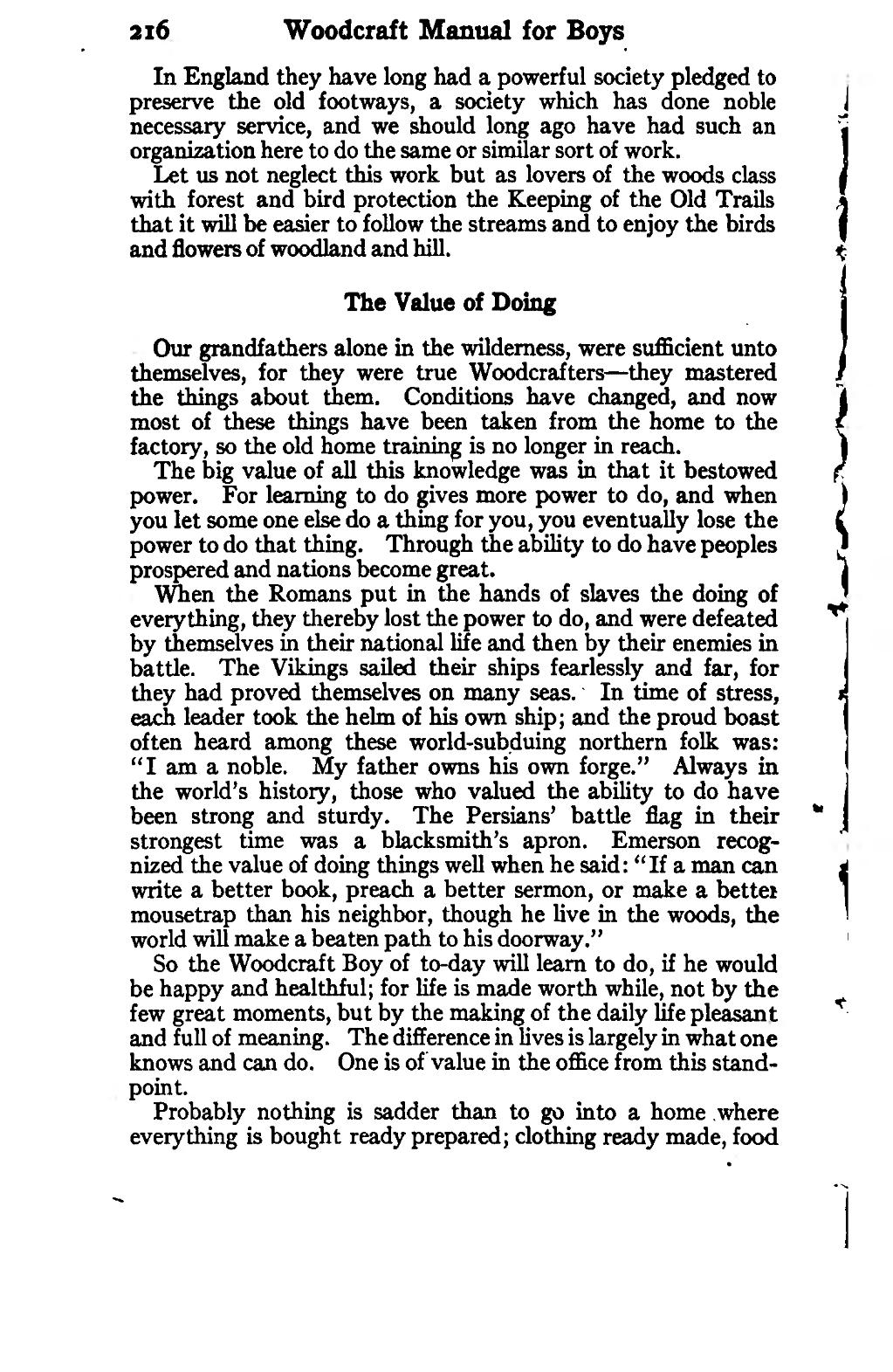Pokračování textu ze strany 247
In England they have long had a powerful society pledged to preserve the old footways, a society which has done noble necessary service, and we should long ago have had such an organization here to do the same or similar sort of work.
Let us not neglect this work but as lovers of the woods class with forest and bird protection the Keeping of the Old Trails that it will be easier to follow the streams and to enjoy the birds and flowers of woodland and hill.
The Value of Doing
Our grandfathers alone in the wilderness, were sufficient unto themselves, for they were true Woodcrafters — they mastered the things about them. Conditions have changed, and now most of these things have been taken from the home to the factory, so the old home training is no longer in reach.
The big value of all this knowledge was in that it bestowed power. For learning to do gives more power to do, and when you let some one else do a thing for you, you eventually lose the power to do that thing. Through the ability to do have peoples prospered and nations become great.
When the Romans put in the hands of slaves the doing of everything, they thereby lost the power to do, and were defeated by themselves in their national life and then by their enemies in battle. The Vikings sailed their ships fearlessly and far, for they had proved themselves on many seas: In time of stress, each leader took the helm of his own ship; and the proud boast often heard among these world-subduing northern folk was: “I am a noble. My father owns his own forge.” Always in the world’s history, those who valued the ability to do have been strong and sturdy. The Persians’ battle flag in their strongest time was a blacksmith’s apron. Emerson recognized the value of doing things well when he said: “If a man can write a better book, preach a better sermon, or make a better mousetrap than his neighbor, though he live in the woods, the world will make a beaten path to his doorway.”
So the Woodcraft Boy of to-day will learn to do, if he would be happy and healthful; for life is made worth while, not by the few great moments, but by the making of the daily life pleasant and full of meaning. The difference in lives is largely in what one knows and can do. One is of value in the office from this standpoint.
Probably nothing is sadder than to go into a home where everything is bought ready prepared; clothing ready made, food ..text pokračuje
